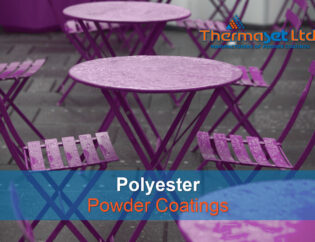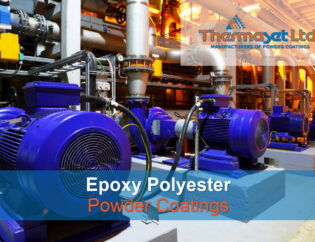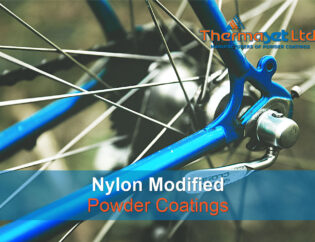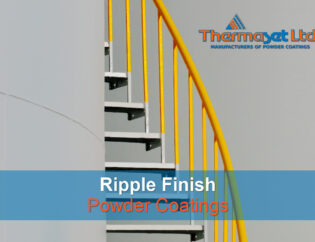Energy Industries
We provide coating solutions for various applications within the energy sector. Powder coating is widely used in the energy industry for various applications due to its durability, efficiency, and environmental advantages. Here are several key areas in the energy sector where powder coating has a significant impact:
Infrastructure and Equipment: The energy industry benefits significantly from the protective qualities of powder coating on its infrastructure and equipment. This includes pipelines, storage tanks, power plant structures, and industrial machinery. By offering a durable and corrosion-resistant barrier, these coatings extend the lifespan of assets, reduce maintenance needs, and ensure reliable operation.
Power Generation: Power generation facilities, such as thermal and nuclear power plants, as well as renewable energy systems, rely on the protective properties of powder coating. Turbines, boilers, heat exchangers, and exhaust systems are among the equipment that benefits from the coatings. They provide resistance to high temperatures, corrosion, and environmental factors, thus enhancing the efficiency and longevity of power generation equipment.
Oil and Gas Industry: The oil and gas industry extensively employs powder coating to protect its infrastructure and equipment. This includes pipelines, offshore platforms, storage tanks, valves, pumps, and refineries. The coatings offer effective corrosion resistance in the challenging environments encountered during exploration, extraction, transportation, and refining processes. They contribute to the prevention of leaks, ensure safety, and optimise the efficiency of operations.
Renewable Energy Systems: Powder coating plays a vital role in safeguarding renewable energy systems, such as wind turbines, solar panels, and hydroelectric equipment. These systems require protection against weathering, UV radiation, and moisture. By providing durability and corrosion resistance, powder coatings help maintain the performance and longevity of renewable energy infrastructure.
Electrical and Electronic Components: Powder coating has an impact on electrical and electronic components used in the energy industry. Enclosures, control panels, switchgear, and telecommunications equipment benefit from the protective and aesthetic properties of powder coatings. They offer resistance to corrosion, abrasion, and environmental factors, ensuring the reliability and longevity of electrical systems.
Powder coating in the energy industry provides significant advantages such as corrosion protection, durability, high-temperature resistance, electrical insulation, aesthetic appeal, environmental friendliness, and cost-effectiveness. These benefits contribute to improved equipment performance, extended lifespan, reduced maintenance, and enhanced sustainability.
Powder coating offers several benefits in the energy industry, contributing to improved performance, durability, and sustainability. Here are some key advantages of powder coating in the energy sector:
Enhanced corrosion protection: Corrosion is a major concern in the energy industry, where equipment is often exposed to harsh environments such as saltwater, moisture, and chemicals. Powder coating provides a robust, protective layer that helps prevent corrosion on metal surfaces. This protection extends the lifespan of equipment, reduces maintenance costs, and ensures reliable operation.
Durability and impact resistance: Powder coatings are known for their exceptional durability and resistance to impact and abrasion. Energy-related equipment, such as pipelines, power plant structures, and industrial machinery, often face mechanical stresses. Powder coating helps withstand these challenges, ensuring that the equipment maintains its integrity and performs reliably over an extended period.
High-temperature resistance: Many energy industry applications involve exposure to high temperatures, such as in power generation, oil and gas processing, and industrial heating. Powder coatings can be formulated to withstand elevated temperatures, providing a protective barrier that prevents heat-related degradation and maintains performance efficiency. This feature is crucial in extending the lifespan of equipment and minimising downtime.
Electrical insulation: Electrical insulation is essential in various energy-related applications to prevent electrical shorts, interference, and damage. Powder coatings can be engineered to exhibit insulating properties, reducing the risk of electrical conductivity. This is particularly important in electrical enclosures, transformers, switchgear, and other equipment where electrical insulation is critical.
Aesthetically pleasing finishes: Beyond their functional benefits, powder coatings offer a wide range of colours, textures, and finishes. This allows energy industry equipment and infrastructure to have an attractive appearance while maintaining their protective qualities. Powder coating can be customised to match branding requirements, provide a professional finish to control panels and cabinets, and enhance the visual appeal of outdoor structures and decorative elements.
Eco-friendliness: Powder coating is a more environmentally friendly coating method compared to liquid coatings. Unlike liquid coatings that contain solvents and release volatile organic compounds (VOCs), powder coatings generate negligible amounts of VOCs. Additionally, powder coating overspray can be reclaimed and reused, minimising waste. These aspects align with the energy industry's focus on sustainability and reducing environmental impact.
Cost-effectiveness: Powder coating can offer cost savings in the energy industry. Its durability and resistance to corrosion reduce maintenance needs and associated costs. Moreover, the efficient application process of powder coating, which involves minimal wastage and quick curing times, helps streamline production and reduce labour costs.








